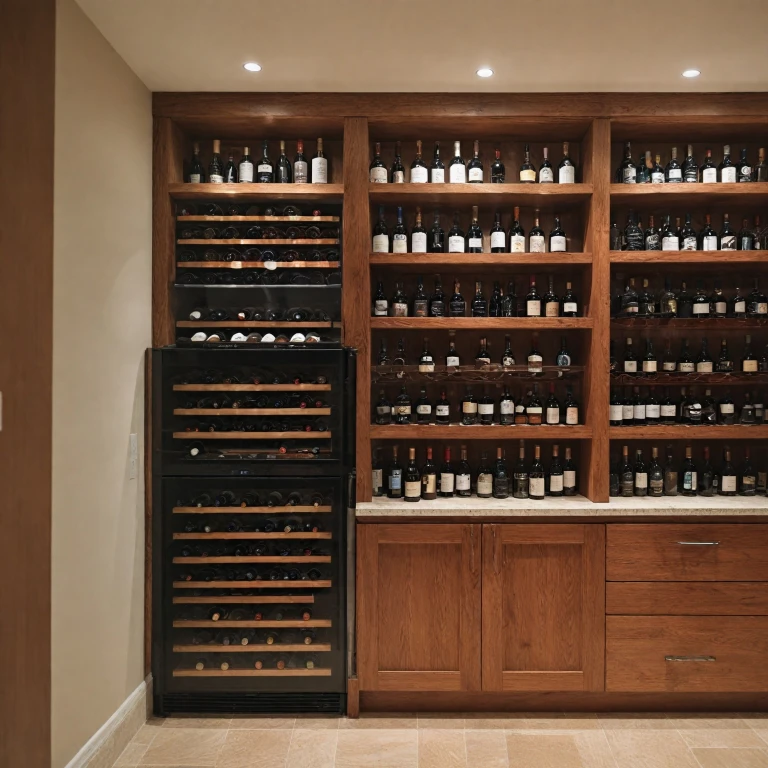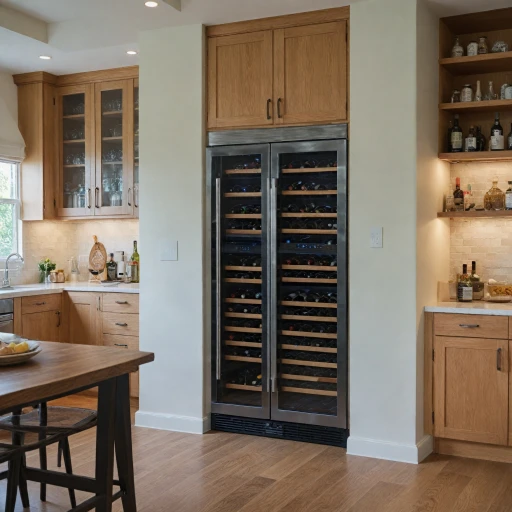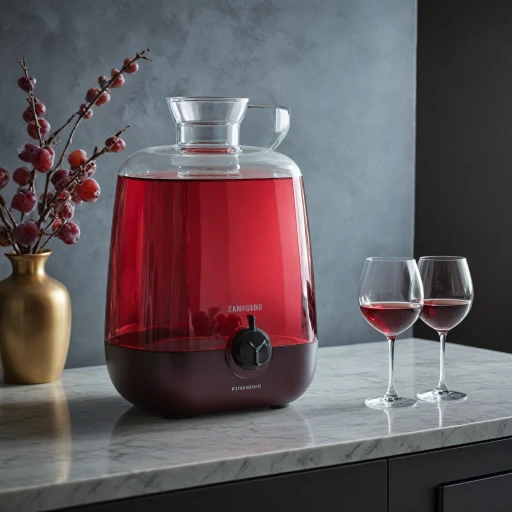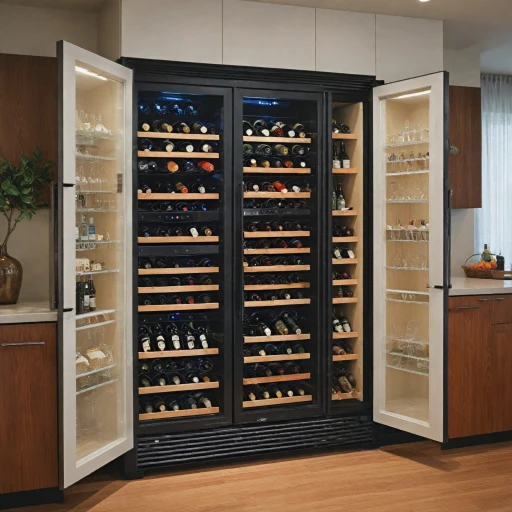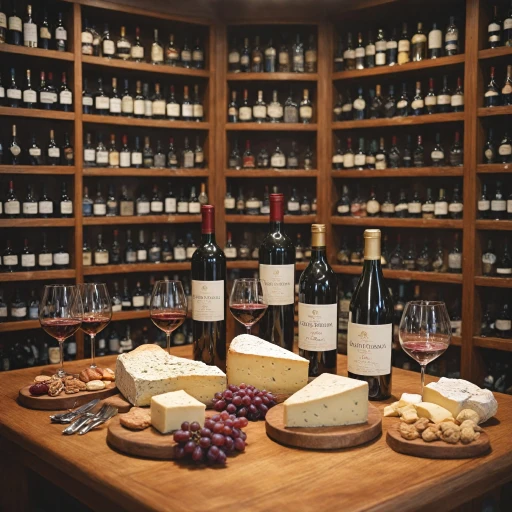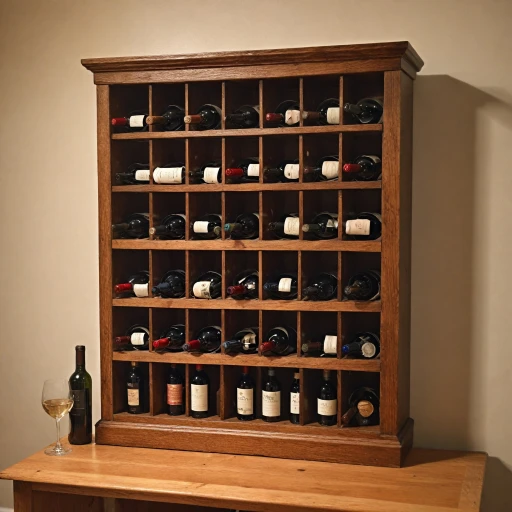
Understanding the Importance of a Cooling Unit
The Role of a Cooling Unit in Preserving Wine Quality
The heart of any wine storage solution, particularly in a compact wine cellar, is undoubtedly its cooling unit system. A dedicated cooling unit ensures that your precious wine collection is kept at an optimal temperature and maintained at a suitable humidity level. Without proper cooling, wines can age prematurely or spoil, disrupting the delicate balance essential for preserving their intended flavors and aromas.
When investing in a cooling unit, it's crucial to assess the unit's ability to manage both temperature and humidity, as both factors are vital for preventing spoilage and cork deterioration. Systems like WhisperKOOL and Breezaire often come with features specifically geared toward maintaining these conditions. The right size cooling unit directly correlates with its effectiveness in your wine cellar.
An efficient cooling system will cater to the cellar’s unique dimensions, taking into account the cubic feet of the space to avoid overworking the unit and unnecessarily increasing its price. It’s worth exploring different types of systems, such as fully ducted or ductless split systems, for their ability to fit in confined spaces.
As you delve into the available options, consider both the upfront cost and the long-term expenses associated with the maintenance and energy efficiency of the cooling system chosen. It's essential to gather information from various reviews to gauge the reliability of brands such as Wine Guardian and Breezaire WKL series. The price might be unavailable initially, but understanding reviews and performance earlier can lead to a well-informed purchase decision.
Key Features to Look for in a Small Cooling Unit
Essential Attributes of Compact Cooling Units
When selecting a cooling unit for your compact wine cellar, understanding the key features that suit your specific needs is crucial. A well-chosen system ensures your wine collection remains at the optimal temperature and humidity, preserving its quality over time.
Temperature and Humidity Control
Maintaining consistent temperature and humidity levels is paramount in wine storage. Look for units that offer precise control, allowing you to set the ideal environment for your collection. Brands like WhisperKOOL and Wine Guardian are renowned for their advanced temperature and humidity management systems.
Unit Capacity and Size
Consider the right size of the unit in relation to your cellar's cubic feet. A unit that is too powerful can lead to excessive energy consumption, while an underpowered one might not maintain optimal conditions. Evaluate the capacity of units like the Breezaire WKL series, which are designed for smaller spaces.
Installation Type
Compact wine cellars often require specific installation types. Wall-mounted, ceiling mount, and fully ducted systems each have their benefits. For instance, a ductless split system can be ideal for limited space, offering flexibility in installation and minimizing noise.
Price and Reviews
Budget is always a consideration. While some unit prices might be unavailable, researching reviews can provide insight into the performance and reliability of different models. Compare options like the Breezaire and Wine Guardian series to find a balance between cost and functionality.
Noise Levels
For many, the noise level of a cooling unit is a significant factor. Systems like the WhisperKOOL Platinum Split are designed to operate quietly, ensuring your wine cellar remains a serene environment.
By focusing on these features, you can select a cooling unit that not only fits your compact cellar but also ensures the longevity and quality of your wine collection.
Types of Cooling Units Suitable for Small Wine Cellars
Exploring Cooling Systems That Fit Your Needs
When it comes to accommodating the specific environment of a compact wine cellar, understanding the types of cooling systems available is vital. These units help maintain the necessary temperature and humidity levels that your wine collection demands, ensuring optimal wine storage conditions. A popular choice among wine enthusiasts, and for good reason, is the ductless split system. This type of cooling unit separates the evaporator and condenser, offering both flexibility and efficiency. Brands such as WhisperKool and Wine Guardian excel in this area, providing systems that maintain a stable temperature without taking up much internal space, which is crucial for those with limited cellar capacity. For small spaces with a direct wall outlet, a self-contained cooling unit might be the most straightforward option. These units are easy to install and require minimal maintenance, often used in well-sealed compact wine cellars. Leading models in this series include the Breezaire WKL, renowned for its simple integration and reliable performance. Then there's the fully ducted cooling system, which provides a sleek appearance by keeping all components out of view. While offering greater flexibility in installation and an improved aesthetic, it's essential to review unit specifications and consider the unit price point against your budget. The Platinum Split series is a noteworthy contender in this category, with its capacity to handle varying cubic feet of storage space effectively. Selecting the ideal system requires balancing multiple factors, from preserving the integrity of your wine to fitting your cellar's specific dimensions and constraints. For those planning to broaden their collection, keeping an eye on long-term needs and the potential for expansion could be beneficial. Consider how each unit might accommodate changes in your wine storage strategy as your collection grows. In summary, the best cooling solution is one that aligns with your unique wine cellar requirements, your prospective wine collection, and the structural limits of your space. For a deeper dive into understanding these elements, learn how to elevate your wine sampling experience through informed choices in wine cooling.Installation Considerations for Compact Wine Cellars
Positioning Your Cooling Unit for Optimal Performance
When installing a cooling unit in your compact wine cellar, the placement is crucial to ensure efficient temperature and humidity control. Consider the capacity of your chosen unit, as it needs to effectively manage the cubic feet of your wine storage area. Units like the Breezaire WKL series are popular for their reliability in smaller spaces.
Choosing Between Wall-Mounted and Ceiling-Mounted Options
Depending on your cellar’s layout, you might opt for a wall-mounted or ceiling-mounted system. Wall-mounted units are often easier to install and maintain, while ceiling-mounted options, such as the WhisperKOOL Platinum Split, can save space and provide a more discreet look. Consider the unit price and installation complexity when deciding.
Ensuring Adequate Ventilation and Airflow
Proper ventilation is essential for any cooling system. Whether you choose a ducted or ductless split system, ensure that there is enough space for air to circulate around the unit. This will help maintain consistent temperature and humidity levels, protecting your wine collection from damage.
Professional Installation vs. DIY
While some may choose to install their cooling unit themselves, hiring a professional can ensure that the system is set up correctly and efficiently. Brands like Wine Guardian and Breezaire often provide installation guides, but professional installation can prevent potential issues and ensure optimal performance.
Budgeting for Installation
When planning your installation, factor in the price of the cooling unit itself and any additional costs for professional installation. While some systems may have a price unavailable tag initially, it’s essential to research and review unit options thoroughly to avoid unexpected expenses.
Maintaining Your Cooling Unit for Longevity
Keeping Your Cooling Unit in Top Shape
Maintaining your cooling unit is essential to ensure the longevity and efficiency of your wine cellar's atmosphere. Regular upkeep will not only maintain the optimal conditions for your wine collection but also help avoid costly repairs or replacements. Here are key maintenance tips:- Regular Cleaning and Inspection: Dust and debris can accumulate in both wall-mounted and fully ducted systems. Make it a habit to clean intake vents and filters regularly. For systems like the ductless split or the Breezaire WKL series, check for any obvious signs of wear or damage. Regular inspections ensure any issues are spotted early.
- Monitor Temperature and Humidity Levels: Consistently check the temperature and humidity with a reliable gauge. The ideal wine storage condition often requires maintaining a steady environment within the cooling capacity. The temperature should sit around 55°F, and the humidity at 60%-70%.
- Schedule Professional Service: Depending on the type of cooling unit, such as a split system or Breezaire WKL, arranging an annual service with experts can greatly benefit the unit. A professional service might also help address price unavailable parts for maintenance.
- Seal Integrity: Check the integrity of cellar doors and seals. Any leaks can cause inefficient cooling and drive up unit price by shortening the lifespan of the system. Ensure that the cellar is well-insulated to maintain the desired cubic feet conditions.
- Review Manufacturer Guidelines: Each cooling unit comes with specific manufacturer guidelines. For instance, a WhisperKOOL or a Wine Guardian system may have particular maintenance instructions crucial for performance. Adhering to these can prolong the life of your unit.
Common Challenges and Solutions
Troubleshooting Common Cooling Unit Issues
A well-functioning cooling unit is critical to maintaining the ideal environment for your wine collection. However, any system, whether a WhisperKOOL or a Wine Guardian, may face issues over time. Understanding potential challenges and their solutions is essential for any wine cellar enthusiast.
Temperature Fluctuations
One common issue is inconsistent temperatures within your wine cellar. This might be caused by an incorrect calibration of your cooling unit or an inadequately insulated cellar space. Ensure that your cooling unit is aptly calibrated. If temperature fluctuation persists, it may be worth considering the insulation quality of your cellar.
Humidity Levels
Another challenge is maintaining appropriate humidity levels. Excessive dryness or moisture can affect the integrity of your wine. Using a cooling system that can monitor and adjust both temperature and humidity, such as units from the Breezaire WKL series, is advisable. Regularly reviewing unit settings and conducting humidity checks can help in managing this issue effectively.
Noise Levels
Noise can be a concern with some contained units. If noise becomes bothersome, explore options like a fully ducted or ductless split system, which offers quieter operation. A ceiling-mounted unit might also reduce noise irritation.
Energy Efficiency
Operating a cooling unit can contribute to significant energy consumption. Older models or systems not matched to your wine cellar's cubic feet capacity may lead to inefficiency. Consider newer models with comprehensive reviews indicating energy savings. An upgrade to systems like the Platinum Split series might offer long-term benefits, despite the unit price.
Regular maintenance and staying informed about potential issues, such as those mentioned in installation considerations or system reviews, can greatly enhance the longevity and efficiency of your cellar cooling units.

